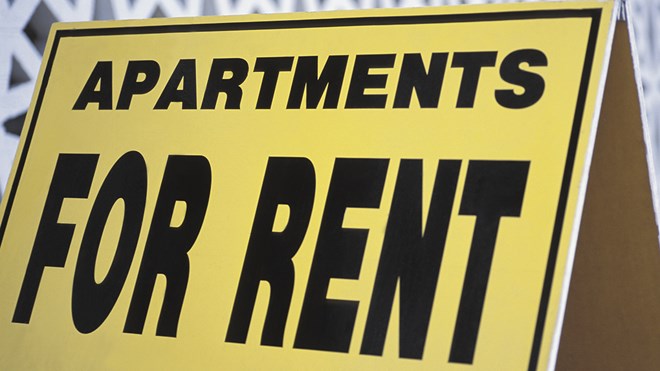A staffing shortage at the Sudbury office of the Landlord-Tenant Board is causing signficant delays in resolving disputes between owners and tenants.
The Sudbury office used to have two adjudicators, but one has resigned and hasn't been permanently replaced, while another is on leave.
Vanessa Campbell, spokesperson for the Social Justice Tribunals Ontario, said in an email the shortage will cause delays in Sudbury, since there's a lack of LTB adjudictors across Ontario. Starting in October, Campbell said hearings will only be held every second week, instead of weekly, until the shortage is addressed.
“Hearing blocks for September and October are now full,” she wrote. “The next available date for a hearing is Nov. 13, 2018.
“Generally, when facing a shortage in one region, the LTB looks to use adjudicators from other parts of the province. However, because the shortage is provincewide, our ability to use this approach is also limited.”
Campbell didn't say when the province expected to deal with the shortage, adding only that “the LTB continues to work hard to meet the needs of landlords and tenants and remains committed to providing fair, effective and timely dispute resolution.”
Michel Marcotte, a licensed paralegal in Sudbury who handles cases for landlords and tenants, estimates there are 7,000-8,000 cases that head to the LTB each year, and about a quarter of those head to a hearing in front of an adjudicator.
The shortage isn't causing major problems yet, Marcotte said, since not many hearings usually happen over the summer.
"What will happen is you'll get a backlog, starting in September," he said. "And then you're playing catch up."
If the problem isn't addressed soon, Marcotte said the backlog will grow quickly, leaving landlords and tenants in the lurch.
"If you're a landlord, and you have a really, really bad tenant that owes you a lot of money or does damage to your residence, you're talking about waiting an extra two months,” he said. “By that time, you've lost even more money, you could lose other tenants sometimes because they don't want to be around these people. So it can have quite an impact."
Tenants do have some other avenues, Marcotte said. Greater Sudbury's bylaw department, for example, can enforce housing standards and force the landlord to make repairs.
"So [tenants] do have some other avenues, but they're very limited."
The wait time for a hearing was already as much as two months, he said, compared to Alberta, where hearings are often scheduled within three weeks.
"We need more adjudicators, because it's really slowing down the process,” Marcotte said. “It's detrimental to landlords and the tenants, who could end up with health issues or monetary problems."
Ray Goulet, president of the Greater Sudbury Landords Association, said some hearings are scheduled for next month, but the prospect of longer waits to resolve problems with tenants could be devastating for some landlords.
If you're dealing with a tenant who doesn't pay their rent, it already takes two to four months to get orders to evict them, he said.
"The average price for an apartment is $1,000 a month,” Goulet sauid. “So you could be out of pocket for $4,000. If you lose too much rent, you lose pretty much any profit for the year."
Jonathan Wong, staff lawyer with the Sudbury Community Legal Clinic where tenants go for legal help, said there are two issues they are facing. Earlier this year, the province ended counter service at the LTB, meaning tenants have to go to the Service Ontario counters.
That means the staff that tenants are dealing with don't have the same expertise surrounding LTB rules, and can't help with the details of filing emergency forms.
And the shortage of adjudicators means temporary ones are flown in, making it difficult to get a full day of hearings in. Hearings often go long, meaning anyone still waiting at the end of the day has to reschedule.
"That causes additional expenses for both the tenants and the landlords, if they have to appear on multiple days," he said. "If they have serious issues, there is a form that tenants can use to try and get an expedited hearing, but practically speaking that's not going to happen if there's a lack of (hearing times)."
